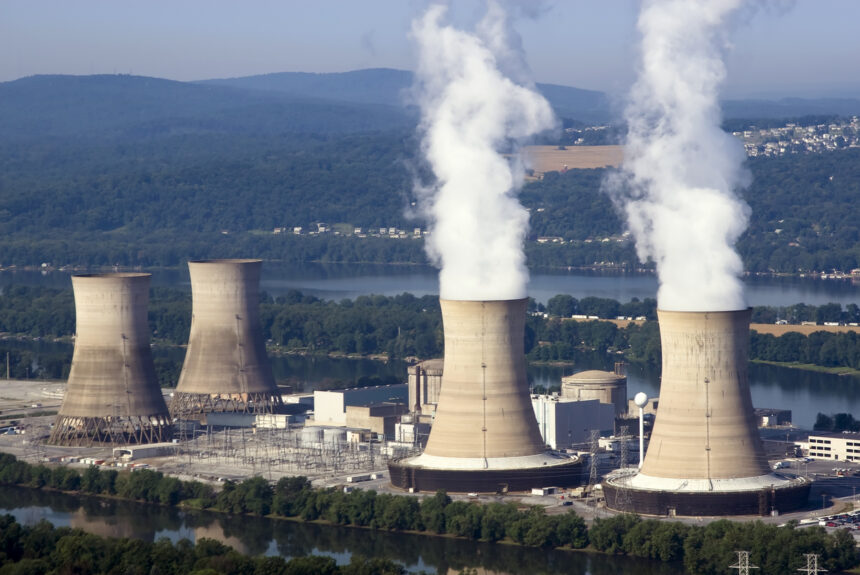This article originally appeared in RealClearEnergy
President Biden recently signed the Accelerating Deployment of Versatile, Advanced Nuclear for Clean Energy (ADVANCE) Act into law. A bipartisan bill, the ADVANCE Act included several provisions to modernize regulations to build nuclear power and accelerate nuclear innovation in the U.S. While certainly worth celebrating, the ADVANCE Act did not address some of the regulatory impediments that plague the industry. Policymakers must take further action to make nuclear power more competitive in the United States.
A central tenet of the ADVANCE Act is bringing nuclear’s regulations into the 21st century. The bill does this by changing the Nuclear Regulatory Commission’s (NRC) mission statement to consider the benefits of civilian nuclear power. Before the bill’s passage, the NRC’s mission statement only focused on protecting public health and safety, national security, and the environment.
>>>READ: Italy’s Hopes for a Nuclear Renaissance
Ironically, the NRC’s failure to consider nuclear’s benefits, which has helped to create a risk-averse culture that does not prioritize deploying nuclear power efficiently, has negatively impacted the health of the public and environment by stunting the development of the pollution-free energy source. This small, but important, change will help the NRC consider and communicate the economic and environmental benefits of nuclear energy to the public and serve as a reminder that the Agency needs to be an enabler, not a barrier.
ADVANCE also includes several provisions to reduce government fees for nuclear power. Section 401 of the bill, for instance, directs the NRC to conduct a report on ways to use standard materials, parts, and components for the construction of nuclear energy projects.
To build a nuclear power plant in the U.S., developers must use steel, rebar, and concrete that adhere to strict quality assurance standards to ensure that the material is “nuclear grade.” Nuclear-grade materials are not necessarily stronger than their conventional counterparts. Oftentimes they are the same materials that have undergone a litany of bureaucracy, documentation, and red tape. As a result, these materials can be as much as 50 times more expensive—a cost that inflates the price of nuclear power projects and reduces competition within the industry. Using standard materials will save project developers money without compromising on the stellar safety record of the nuclear industry.
While the ADVANCE Act takes several positive steps for nuclear power, it does not address some of the largest issues facing the industry, one of which is overburdensome radiation standards.
Under the current regulatory structure, nuclear power plants must produce radiation levels that are as low as reasonably achievable (ALARA). ALARA standards are based on the Linear No-Threshold (LNT) model which assumes that because exposure to a chemical is dangerous at a high level, it is also dangerous at a low level. This model is not backed up by scientific data and also renders no dose of radiation to be completely safe. If that were the case, Americans would be restricted from all sorts of activities, as flying on an airplane exposes you to more radiation than nuclear power plant workers face.
Advanced Nuclear Reactor Breaks Ground in Wyoming: Can it be the First of Many?
Nuclear power plants naturally emit low levels of radiation, which means that ALARA provides practically zero public health benefits for steep compliance and regulatory costs. However, the additional fee of ALARA standards is not the direct cost to power plant operators, but the indirect cost of reduced social acceptance in the United States.
Because no dose of radiation is acceptable under the LNT model, the public has been led to believe that nuclear energy is inherently safe—despite the fact that it is one of the safest energy sources available. This fear has led to premature power plant shutdowns, state moratoriums on nuclear energy, increased regulations, and less public buy-in for the power source. To put nuclear power on a level playing field with other energy sources, Congress should reevaluate ALARA and implement more scientific radiation standards.
The ADVANCE Act also failed to cultivate a comprehensive spent fuel management plan, the lack of which has crippled the industry’s ability to address the challenge, hurt public support for the energy source, and cost taxpayers billions of dollars. Policymakers can remedy this by following many of the recommendations from the 2012 Blue Ribbon Commission on America’s Nuclear Future, which includes establishing intermediate and permanent depositories, and introducing private sector management and price signals into the spent fuel management process.
The ADVANCE Act includes many provisions to lower barriers and accelerate the deployment of nuclear energy in the U.S. Congress can capitalize on this legislation by implementing further regulatory reforms to put nuclear power on a level playing field with other energy sources.
The views and opinions expressed are those of the author’s and do not necessarily reflect the official policy or position of C3.
